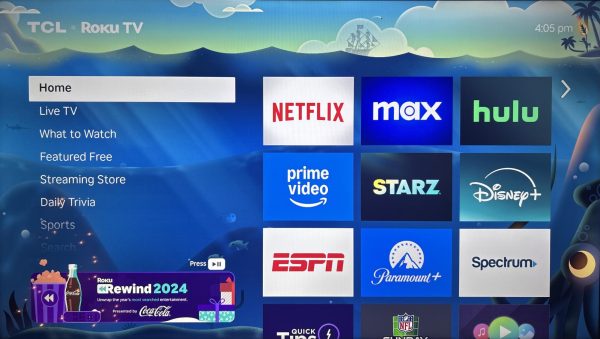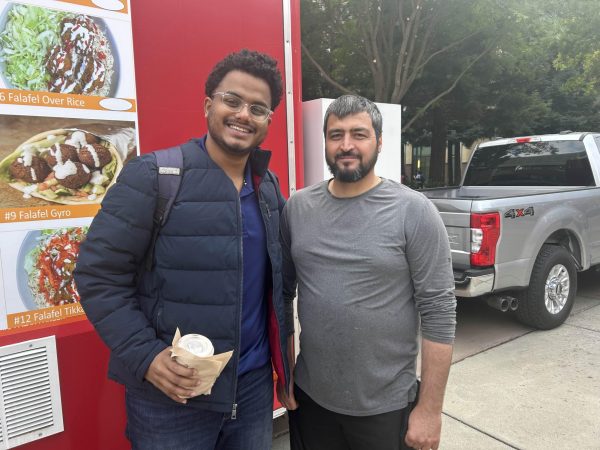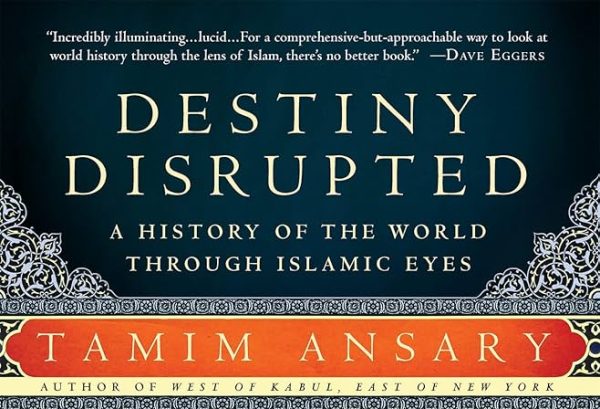The press is not the enemy
It’s no secret the public has a complicated relationship with the media. Despite spending an average of eight hours a day consuming it, most Americans report having a lack of trust in the media.
According to a Gallup poll regarding Americans’ trust in mass media “29% of the public currently registers ‘not very much’ trust and 34% have ‘none at all.’”
As of now, the public’s relationship with journalism is highly problematic. As a culture, we are pointing our accusatory finger at journalism which is only adding fuel to the rampant fire of division in our country.
However, it’s not journalism that’s the issue.
Journalism was built into the constitution to serve the public by providing checks and balances on large institutions. However, without the support and trust of the public, journalism is essentially useless.
The media is frequently blamed for the current divide in our country.
While the term “fake news” was coined during Donald Trump’s presidency, feelings of resentment toward journalism have stayed with the public long after Trump’s exit.
The solution to the divide begins with a better understanding of the process of journalism and the differences between the various forms of media.
First of all, it is important to separate journalism from entertainment.
Entertainment media has the sole purpose of, well, entertaining. This type of media profits off of dramatizing and sensationalizing stories to create interesting and compelling content for their audience.
The goal of entertainment media is entirely different from the goal of journalism, which is to inform the public and provide objective truths.
There is also a third type of media which plays a role in this conversation — social media.
In a society that practically revolves around social media, anyone can make a post and have it go viral in a matter of minutes. With the goal of social media being to create engagement, oftentimes the posts that go viral are the most extreme or controversial, regardless of how true they are.
Due to this phenomenon and the ability to easily share posts without knowing the source of the information, false information spreads like a virus. When sensationalized ideas or rumors are spread as fact, social media and entertainment have similar levels of reliability when it comes to objective, verified truth — none.
Another factor playing into the public’s inability to distinguish types of media is the appearance of news sources on social media platforms.
Because news sources have moved online, their postings are thrown into the mix with false information from entertainment outlets and social media. This makes it more difficult for the untrained eye to distinguish the difference between unverified media and journalism.
Social media editing tools also play a role, as they give anyone the ability to make a post look “professional” through photo editing, logo creation and other visual editing tricks.
When it comes to journalism, most people don’t realize there is not only a desire, but also a need to discover and write the truth.
Journalists are sued for libel often, and the cases go down to the nitty gritty. In order to protect themselves from being sued, journalists put in research and work to report the truth.
Even the implication of something untrue in a story can lead to a lawsuit.
While each case is different, the basic requirement for libel is that a false statement was published which negligently or recklessly caused harm.
If a reporter does not adequately research their article before it gets published, it’s enough to be considered negligent and can be used against them in a trial.
While journalism is meant to serve the public, libel laws are there to give the public trust that journalists are being held accountable to printing the truth.
That being said, journalists are not totally unbiased.
Journalists are human beings who have their own political opinions, and unique experiences which shape their beliefs and thoughts. It is impossible to be an unbiased reporter, though it is possible to strive to report objectively.
The code of ethics that journalists follow requires them to report their stories truthfully and with the intent of accurate representation.
It is also worth mentioning opinion journalism.
Opinion journalism is distinguished from other sections such as news, sports, arts and entertainment etc, because it is the only form of journalism where opinion is the guiding force of the article. This is the one place where personal viewpoints can be expressed without consequence.
A lot of broadcast journalism is opinion, which adds to the divide in politics and news stations being labeled with an ideology.
Examples of this type of broadcast would be Tucker Carlson from Fox News or Hasan Piker, who was a previous columnist at the HuffPost and broadcast journalist at The Young Turks.
It is important to know when you are consuming opinion journalism as opposed to news because the research process is so different between the two. Often when it comes to broadcast journalism viewers aren’t able to distinguish the difference between the two which is highly problematic.
The consistent blaming of journalism for the divide in our country is a never-ending cycle with no solution.
When news and facts are dismissed because there is no trust in journalism, this further widens the division in our country because there is no common ground. There is no basis of fact to go off of as republicans hold one version of the story and democrats hold another. There is no room for conversation because it all comes down to “I don’t think that’s true.”
The media is not the reason for the divide in our country. The lack of understanding as to what journalism is and should be is the reason for the divide.
Right now, the media is just a bunch of voices yelling at each other in a crowded room with no organization. If we as a culture and society can rebuild our relationship and trust in journalism, we can start quieting the chaos of voices. Instead, we will have a panel with microphones to guide our beliefs.
There will always be division in our country, especially in a country with a two-party system. But right now, we are turning against an institution that was put in place to protect the public.
Without journalism, there is no one to hold the government or larger institutions accountable. We as a society stay blind to the secrets they want to hide.
Unfortunately, the light journalism sheds on these secrets is often disregarded and thrown into the pile called “fake news.” No one knows what is true or what to believe.
If we work to improve our understanding of the process of journalism, we can start trusting the results that come from it. Only then can we begin healing the divide in our country.
Hunter Casperson can be reached at [email protected].








